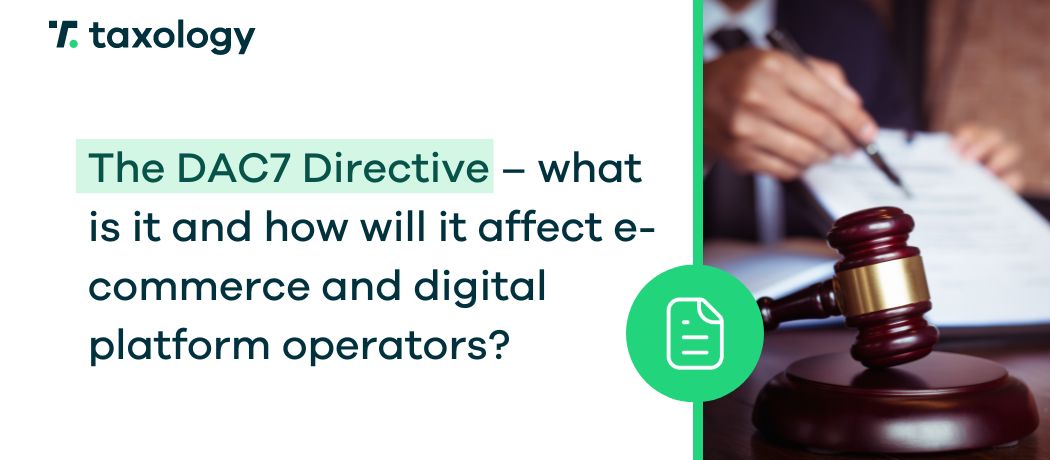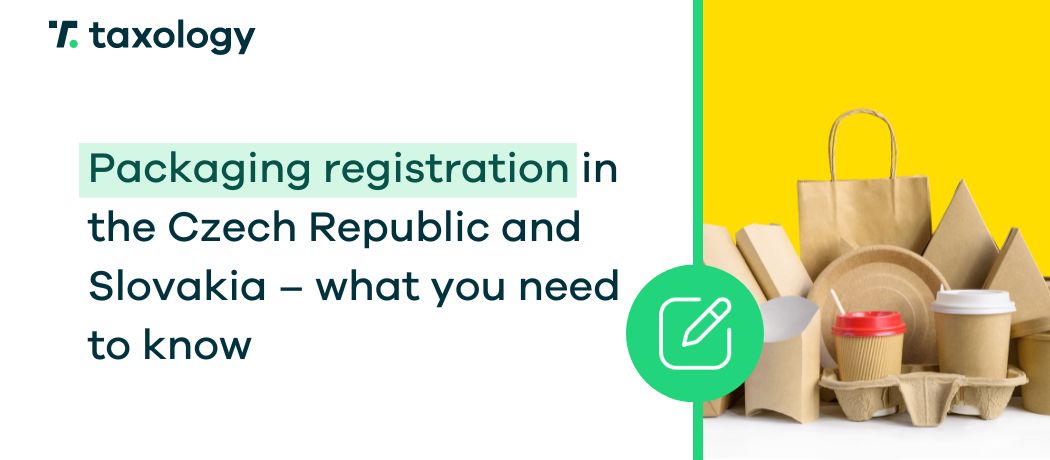France is one of the largest and wealthiest countries in Europe, making it an extremely attractive market for expansion for many entrepreneurs in the e-commerce sector. However, like any other […]
Read in: 5 minThe DAC7 Directive – what is it and how will it affect e-commerce and digital platform operators?
- Last update: 23.02.2024
- Published: 11.04.2023
- Read in: 8 min
Starting from May 1st, significant transformations are on the horizon for the Polish e-commerce landscape. The EU’s DAC Directive, which applies universally to all member states, is scheduled for implementation. However, the full scope of these changes remains uncertain, given that certain details are still not entirely clear. What is confirmed is that the implementation of the DAC7 Directive mandates Member States to provide reports encompassing details about the sale of goods, the sellers operating on platforms, and the profits generated through these platforms. These fresh reporting responsibilities will primarily affect platform operators.
From this article you will find out more about:
- What the DAC7 Directive is?
- How DAC7 will affect digital platform operators?
- What reporting obligations will arise once the Directive comes into force?
- Who will not be subject to the reporting obligations under the DAC7 Directive?
What exactly is the DAC7 Directive?
As of May 1, 2023, Poland will enact Council Directive 2021/514, commonly known as the DAC7 Directive, which has gained recognition for its aim to address tax avoidance and loopholes in tax settlements by facilitating the collection of transaction data from digital platforms, including websites and mobile apps, within the European Union member states.
The DAC7 Directive’s implementation will establish a requirement for digital platform operators to report user information from their websites and apps to national authorities. The goal is to create a mechanism within the European Union for the exchange of information acquired about sellers among member countries.
It’s important to emphasise that this directive applies to platform operators who charge fees for granting access to their platforms, allowing sellers to interact with customers for activities like:
- the sale of goods
- real estate rental
- vehicle rental
- parking space rental.

When will the DAC Directive7 come into force?
Originally, the DAC-7 Directive was scheduled for implementation by January 1, 2023, but not all Member States managed to meet this deadline. This includes countries like Spain, Greece, and Belgium, in addition to Poland.
In Poland, a public consultation period was in effect from January 1 to March 1 of this year, during which the Ministry of Finance accepted feedback on the draft Directive.
However, the new regulations will officially take effect from May 1, 2023. Consequently, reporting platform operators will be required to prepare their initial report for the year 2023 by January 31, 2024.
Which entities will not be affected by data collection?
All digital platform operators will be subject to mandatory tax information exchange, but the new obligations will not apply to all users utilising digital platforms. Reporting platform operators will not be obligated to report on:
- government entities,
- market entities listed on the stock exchange,
- real estate sellers who have conducted more than 2,000 property rental transactions during the reporting period,
- sellers who have conducted up to 29 transactions through the platform during the reporting period, with earnings less than 2,000 euros.
Attention e-commerce merchants!
Reporting platform operators will not have to report data on sellers who made up to 29 transactions using a website or mobile application and earned less than EUR 2,000.
What will be subject to reporting in accordance with the DAC7 Directive?
In accordance with the Directive, the platform operator will be required to gather the subsequent user-related data, which will subsequently be conveyed to the appropriate authorities:
- identifying information of individual sellers, including but not limited to name, address, VAT number, and TIN number,
- identifying information of seller entities, such as company details, primary address, VAT number, country of issuance, and VAT number,
- commissions,
- taxes deducted or collected by the reporting platform operator,
- the total compensation earned by sellers using websites and e-commerce applications.
What else will the digital platform operator be obliged to do?
Apart from the previously mentioned reporting requirement, the platform operator will also have various additional duties. These include the implementation of systems for data collection and information verification, as well as the establishment of suitable procedures for safeguarding personal data (in accordance with GDPR) obtained through this new obligation.
DAC7 Directive - penalties and sanctions
Digital platform operators who do not meet their obligations may encounter potential penalties and sanctions, which include fines ranging from PLN 100,000 to PLN 5,000,000, or the risk of being deregistered from the VAT registry.
Doubts and ambiguities arising from the DAC7 Directive
The new regulations introduce additional responsibilities for platform operators, but some aspects still raise questions. For instance, one of the data requirements for reporting platform operators is the land registry number, yet property landlords are not obligated to disclose this information.
Furthermore, as mentioned earlier, the initial report is expected to cover the entire year 2023, even though the legislation won’t have been fully in effect for the entire period. This creates uncertainty about whether all operators will be able to access the required data.
Additionally, it remains unclear how Tax Offices, which will receive this information, will respond to such situations.
DAC7 Directive - Summary
The enforcement of new regulations often triggers corresponding adjustments in related activities. While the DAC7 Directive primarily targets digital platform operators, its ramifications may extend to other participants in the market. For platform providers, this potential impact could arise if operators amend their rules, obligating users to furnish the necessary information. Whether this will transpire remains uncertain until at least May.
In the meantime, if you encounter any challenges related to VAT or OSS registrations, settlements, or returns, don’t hesitate to schedule a free consultation with our team of VAT Compliance specialists.





